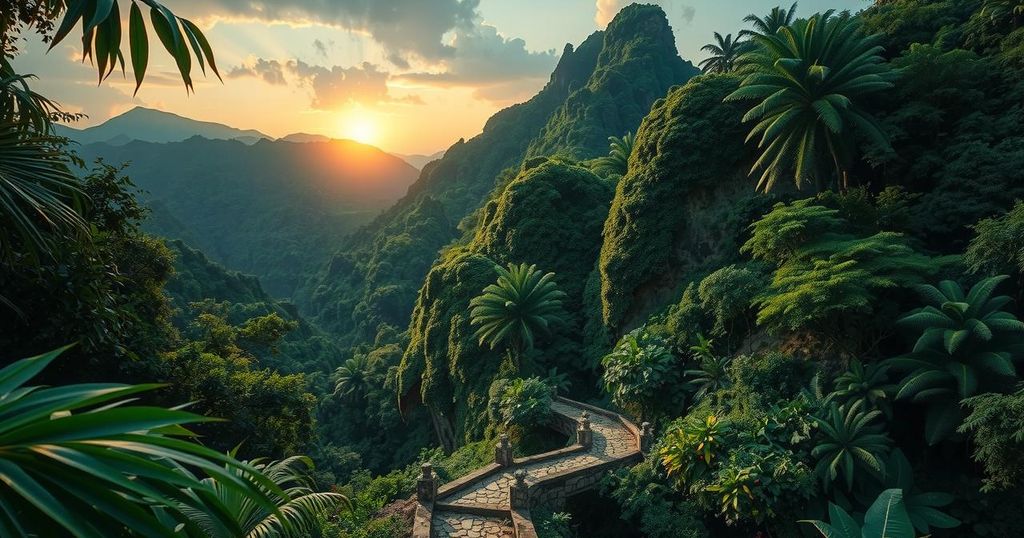The Democratic Republic of Congo: Rich in Resources, Struggling in Conflict

The DRC is rich in natural resources but plagued by violence and conflict, predominantly linked to the M23 rebel group. Allegations of Rwandan support for M23 exacerbate the situation, as control over resources drives the conflict. Humanitarian needs are urgent, with millions requiring assistance amidst ongoing violence. International action focusing on awareness, funding, and policy advocacy is essential for aiding the DRC in achieving stability and utilizing its resources effectively.
The Democratic Republic of Congo (DRC) is renowned for its vast natural resource wealth, estimated to be around $24 trillion, including significant deposits of cobalt and coltan. Nevertheless, the nation faces severe violence, particularly in the eastern regions, as conflicts are intensified by the actions of rebel groups like the March 23 Movement (M23), comprised of Congolese Tutsi ex-soldiers. Historical tensions, particularly following the 1994 Rwandan genocide, contribute to the ongoing unrest.
Allegations persist regarding Rwanda’s support for the M23 rebels, as international observers cite findings from United Nations reports indicating military assistance from Rwanda, including weapons and training. Despite Rwanda’s denials, these claims reveal the broader power dynamics at play in the region, indicating that the conflict underscores not only local issues but also international interests.
The complexity of Rwanda’s involvement is fueled by strategic interests, particularly concerning the region’s mineral resources. The M23’s control over vital towns such as Goma raises concerns that their campaign is less about ethnic defense and more about resource exploitation, as they manage key mining areas vital for global technology supplies. This has perpetuated a cycle of violence driven by the plundering of the DRC’s wealth.
Amid increasing humanitarian needs, it is essential to provide systematic support for the Congolese populace facing dire conditions. With approximately 26 million individuals requiring assistance, urgent action is crucial to address the consequences of violence, poverty, and health crises. Collaborative efforts from various organizations are pivotal in addressing these immediate challenges.
Raising global awareness of the DRC’s plight can stimulate humanitarian support and aid funding. Targeted financial contributions to reputable organizations—like the International Rescue Committee and Save the Children—can facilitate healthcare and emergency relief. Additionally, advocating for policy reforms to ensure ethical sourcing of Congolese minerals can hold companies accountable and reduce the trade in conflict-related resources.
The DRC’s situation reflects a tragic paradox: a nation rich in resources yet continuously engulfed in conflict. As allegations arise of Rwanda seeking economic control under security pretenses, millions suffer from the instability. Collective international efforts focusing on humanitarian aid and policy advocacy are essential to empower the DRC to utilize its wealth for sustainable growth. Immediate action is needed to transform the DRC’s riches from conflict fuel into foundations for development and prosperity.
The DRC is frequently identified as one of the most resource-abundant nations, possessing significant mineral wealth. However, this resource potential coexists with prolonged conflicts, particularly in Eastern DRC. Tensions have historical roots, especially tied to the aftermath of the Rwandan genocide, influencing the nation’s instability and the continued existence of various militant groups, particularly the M23 rebel faction. The complex interplay between regional security and resource exploitation plays a critical role in understanding the DRC’s current crises.
In summary, the Democratic Republic of Congo represents a nation rich in natural resources yet marred by continuous conflict and humanitarian crises. Allegations of Rwandan involvement highlight the underlying strategic interests that complicate the resolution of this situation. A multifaceted approach emphasizing awareness, financial support, and policy reform is vital to assist the Congolese people and transform their vast resources into a means of development rather than conflict.
Original Source: borkena.com








